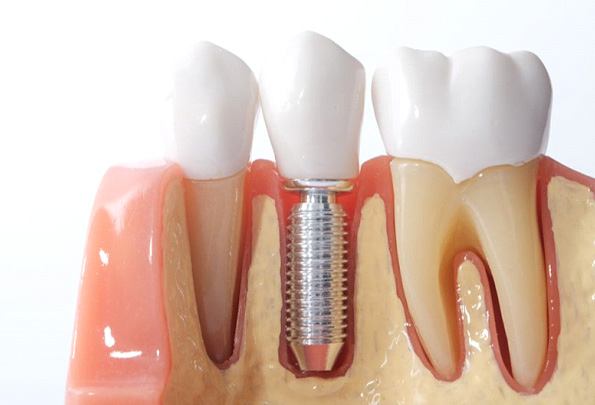Dental Implant Failure & Salvage – Everett, WA
An Efficient Way to Save Your New Teeth

Dental implants provide a much more comprehensive and stable solution for rebuilding missing teeth from the roots up. As one of the best tooth replacement options out there, you can typically enjoy incredibly natural feeling and long-lasting results that can last a lifetime. However, while this treatment comes with a success rate of over 95%, there’s still a small risk of failure. Should you happen to notice problems with your dental implant, you’ll want to visit our team for salvage treatment in Everett. We’ll evaluate your situation and determine the next best steps for maintaining your new pearly whites!
Why Do Dental Implants Fail?

Perhaps the biggest culprit of dental implant failure is peri-implantitis—a form of gum infection that surrounds the titanium post and begins to weaken the jawbone structure and destroy the connective tissues holding it in place. In most cases, this condition starts due to poor oral hygiene or periodontal disease. It can also be caused by other factors like certain medical conditions (like osteoporosis and unchecked diabetes), physical trauma, and failed osseointegration.
Generally speaking, the best way to avoid peri-implantitis is to maintain strict oral hygiene while also visiting your dentist every six months for checkups and cleanings. Be sure to also speak with our team and your primary physician if you have a medical condition that could interfere with osseointegration, and we’ll be happy to work with you to minimize the risk of failure.
Symptoms of Failed Dental Implants

In some instances, dental implants can fail sometime after surgery or even years down the road. In either case, it’s best to know what to look out for so you can be prepared. Some of the most common symptoms of a failed dental implant include:
- Loose metal post
- Discomfort or pain
- Trouble biting down
- Inflammation in the gums
- Gum recession surrounding the implant
How Dental Implant Salvage Works

If you notice issues with your dental implant, or you’re struggling with pain or discomfort around the post, make sure to get in touch with our team for help. We’ll need to assess your mouth and review your symptoms to determine the root cause of your situation as well as the proper treatment needed to save your tooth. Depending on your case, this might involve procedures like deep cleanings, scaling and root planing, antibiotics, and other methods for controlling infection. Remember, the sooner you seek help, the higher the chance of salvaging your dental implant!
